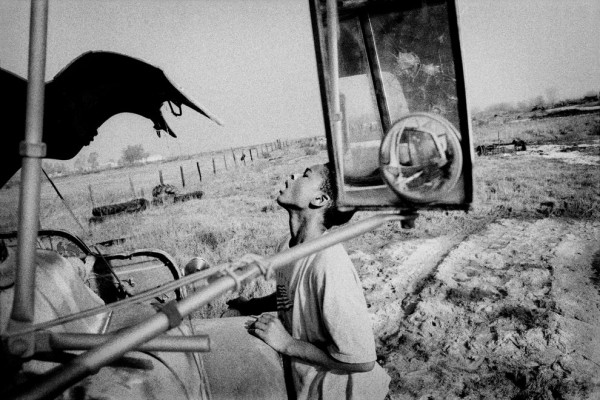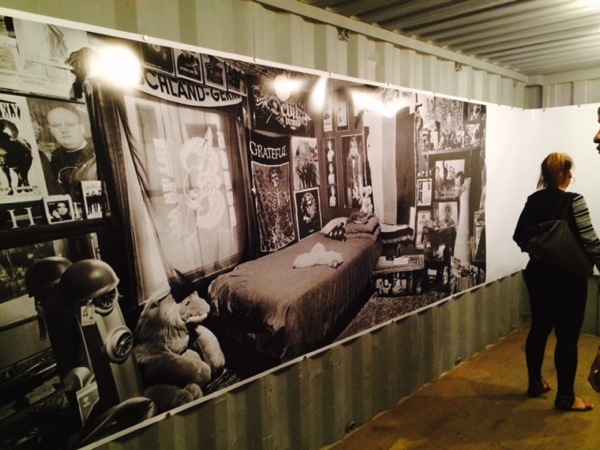Notes
Photoville 2014: Matt Black and California's Dust Bowl
(Click for larger size)
Central California photographer Matt Black is at Photoville this week, and he also has an exhibition which opened last night at the wonderful Anastasia Gallery on the Lower East Side. If many photos address immigration and others, the drought, these issues in so many of Matt’s images inform one another. You can see a more recent project from Mexico at Lens, this slideshow at Lightbox focuses specifically on poverty and Photo Wings has a very nice video interview with Matt in the field, with a large set of links.
Often the light seems almost textural, with elements we would otherwise relate to as hard and fast — like rocks or hills — losing form in a grainy quality. If the result is stark, it’s also ephemeral. At times, Matt will also use an object or a shadow for oddity, evoking the sense of nature out of balance. Although the disjunction is not usually this surreal, in this image from 2001, Matt seems to almost pay homage to Hitchcock. The photo has its own storyline involving the Dust Bowl and African-American migration. (Caption below.) From a more purely graphic standpoint though, the photo is mesmerizing in the dialogue between trunk and boy where the former could almost be a crow. The boy might not be answering though. Instead, he might be thirsty as the land. But the opportunity for suggestion in no way stop there. Not with the view looking back partly shattered and the chest of the boy sporting Old Glory.
More images from the Black Okies series at Matt’s site.
(photo: Matt Black, 2001 via National Geographic. caption: Farmers from Oklahoma and Texas fled to California to escape the Dust Bowl misery of the 1930s, “but there is an untold chapter of that whole migration,” says Black. Migrants from the south known as “Black Okies” were also flocking to the promised land of California. A third-generation descendant of one of those migrants takes a break to check the car engine during a family visit to Teviston, once a thriving town where his forebears lived. Says Black: “What he’s visiting is now a vanished community. There are only a handful of ‘Black Okies’ left.”)



Reactions
Comments Powered by Disqus